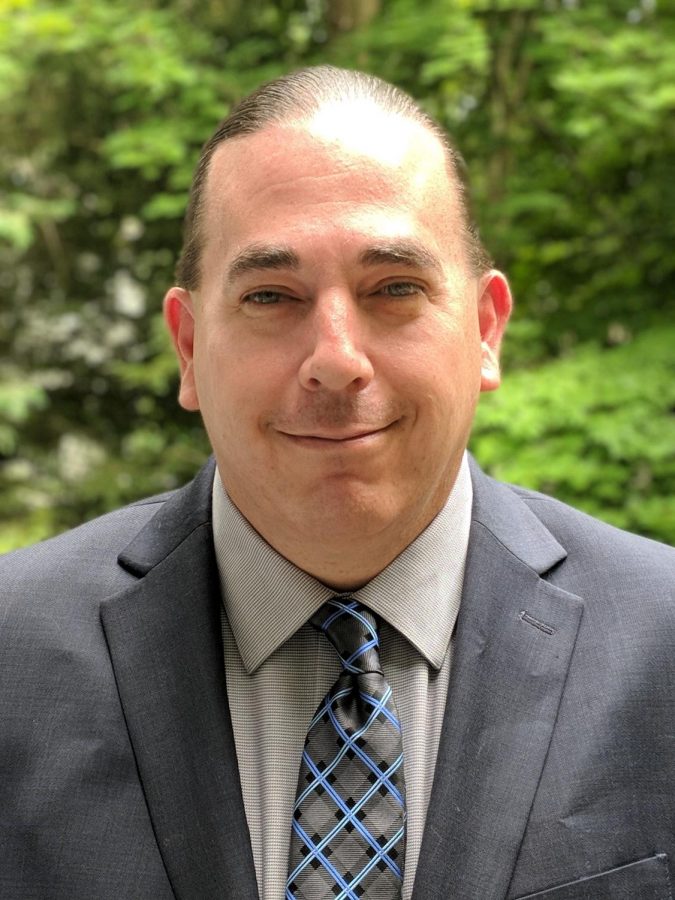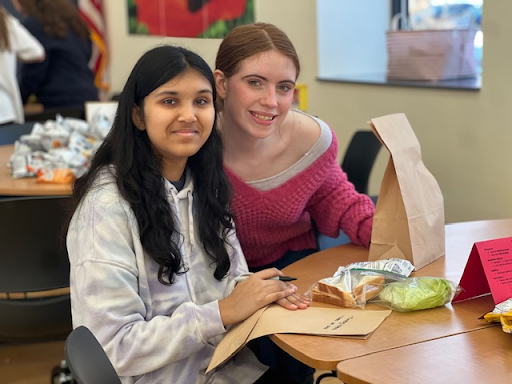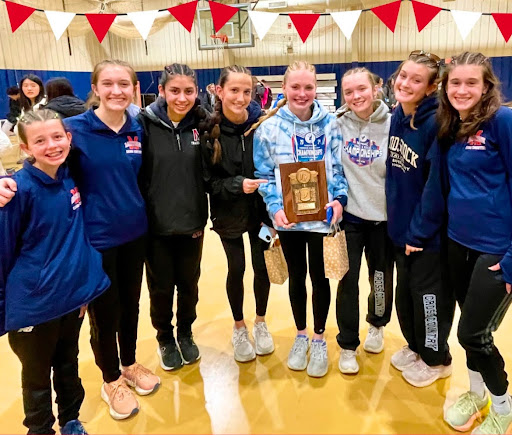Why Who Tells the Story of History Matters: Abbe Museum Executive Director Mr Chris Newell 9th Grade Guest Speaker
On Wednesday, September 30, Mr. Chris Newell — who serves as Executive Director and Senior Partner to the Wabanaki Nations for the Abbe Museum in Bar Harbor, Maine — joined the 9th grade class over Zoom to share his historical expertise and his family history. As a member of the Passamaquoddy Tribe of Maine, married to his Pequot wife, and as collaborator with the Wabanaki Nations throughout the Northeast, Mr. Newell connects family and community to world history in a unique and engaging way. This is his fifth year visiting Montrose’s 9th grade, a signature program that only improves over time. This year, he joined the class virtually over Zoom during a special Wednesday session of our deep-work time.
Mr. Newell said that the teaching of Native American history is often left to limited moments in US history, such as the often mythologized version of European exploration in the 16th century, 19th century Westward expansion, and the 19th century rewriting of the Thanksgiving story among the Pilgrims and the Wampanoag Tribe. The lack of historical complexity in these stories has served to reinforce the marginalization of the 570 federally-recognized Native tribes and over 1000 different Native cultures that remain in the US. He also explored the terms Native and Indian to reveal a classification of peoples that artificially places diverse Native cultures “into one box,” which distorts their complex history in ways that attempt to reduce diverse cultures into one false aggregate image of an American Native. Yet, he emphasized that the term Indian will not change because it is ingrained in the US Constitution and in legislative history that uses that term to document policies toward diverse tribes since the founding of America. He also mentioned that there were moments in US history when American governments recognized tribes with more local complexity, such as the Treaty of Watertown, signed a day after the Declaration of Independence at the State House in Boston, which established that the Wabanaki Nation had the right of self-government.
For those familiar with Chimamanda Ngozi Adichie’s TED Talk The Danger of a Single Story, Mr. Newell’s talk revealed a similar pattern in how US history classes have treated Native histories. He displayed illustrations by early European settlers that portrayed Native peoples as savages with tails, who often looked devilish in appearance. He also spoke about how Western films developed a pattern of music that cast Native tribes as ominous and dangerous tones in a pattern of musical beat created by filmmakers. The percussion repetition of “DUM-dum-dum-dum, DUM-dum-dum-dum,” according to Mr. Newell, creates a melancholic, vaguely-threatening tone that casts Native peoples as dangerous and has influenced countless generations of Americans through the power of popular media. While these visual and musical images have been influential in framing non-Native perceptions of Native peoples, they have also had the effect of making the diversity and complexity of tribal cultures and history largely invisible to Americans. Anthropologists and historians of the past have added to these challenges by using one tribe for a study but calling the results generalizable to all Native cultures. Mr. Newell emphasized how vital it is for students of history to study primary sources in the voices of the people within a culture to get a more complex understanding and perspective to compare to other accounts. Who tells the story holds a lot of power over that story.
Montrose Upper School History teacher Mrs. Michel said: “Mr. Newell’s presentation served as an important reminder that there is a history to the way we study history. As the 9th grade continues to dive deeper into the study of the development of western civilization, I hope they will think back to this presentation and also consider who might be missing from different accounts we read, why that is the case, and how this impacts the choices they will make as historians.”
The 9th grade has been studying the paradigm established by historians as to how people developed from nomadic ways of life, to settled agricultural societies, toward chiefdoms, and civilizations; yet Mr. Newell revealed how this simplified story of history misses the complexity of the historical record. Even in the early days of 17th century British colonization of this New England region, the Passamaquoddy and Pequot peoples spanned all of these paradigmatic categories, and there is evidence that many tribes in the US met all of the criteria for highly-developed civilizations. Yet, most European settlers placed Native tribes in one small box labeled sometimes as less than human and often as savages, which reframed the conquest of the Americas with the narrative that Europeans civilized a primitive land. As Mr. Newell documented, Native peoples once occupied 100% of the Americas, and now they represent less than 2% of America’s population. The early phases involved the loss of lives, due to wars, disease, and displacement; however, the loss of culture has had a long-term devastating legacy.
A fascinating story that he told exposed another paradigm taught in history that the historical record reveals is more complex. Students read in their textbook that, with the Neolithic Agricultural Revolution in circa 10,000 BCE, patriarchy emerged. However, Mr. Newell explained that matriarchy has been a long standing tradition in the Wabanaki tribes. He said that the grandmother holds the highest status in the family, and that is why the two Catholic churches that serve the Passamaquoddy Tribe are both named St. Anne, because St. Anne was Jesus’ grandmother. Mr. Newell’s own grandmother helped found one of those churches.
When one student asked how he would define “civilized,” Mr. Newell responded that he relies on his tribal traditions and faith principles to affirm: “All life is sacred.” He added: “We are all here now, and we need to know how we got here, understand the mistakes, and not repeat them. We have to learn how to value all lives — Native and non-Native — and to learn how to manage resources in more sustainable ways.”
Barbara Whitlock, Humanities Coordinator
bwhitlock@montroseschool.org










